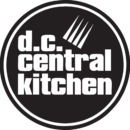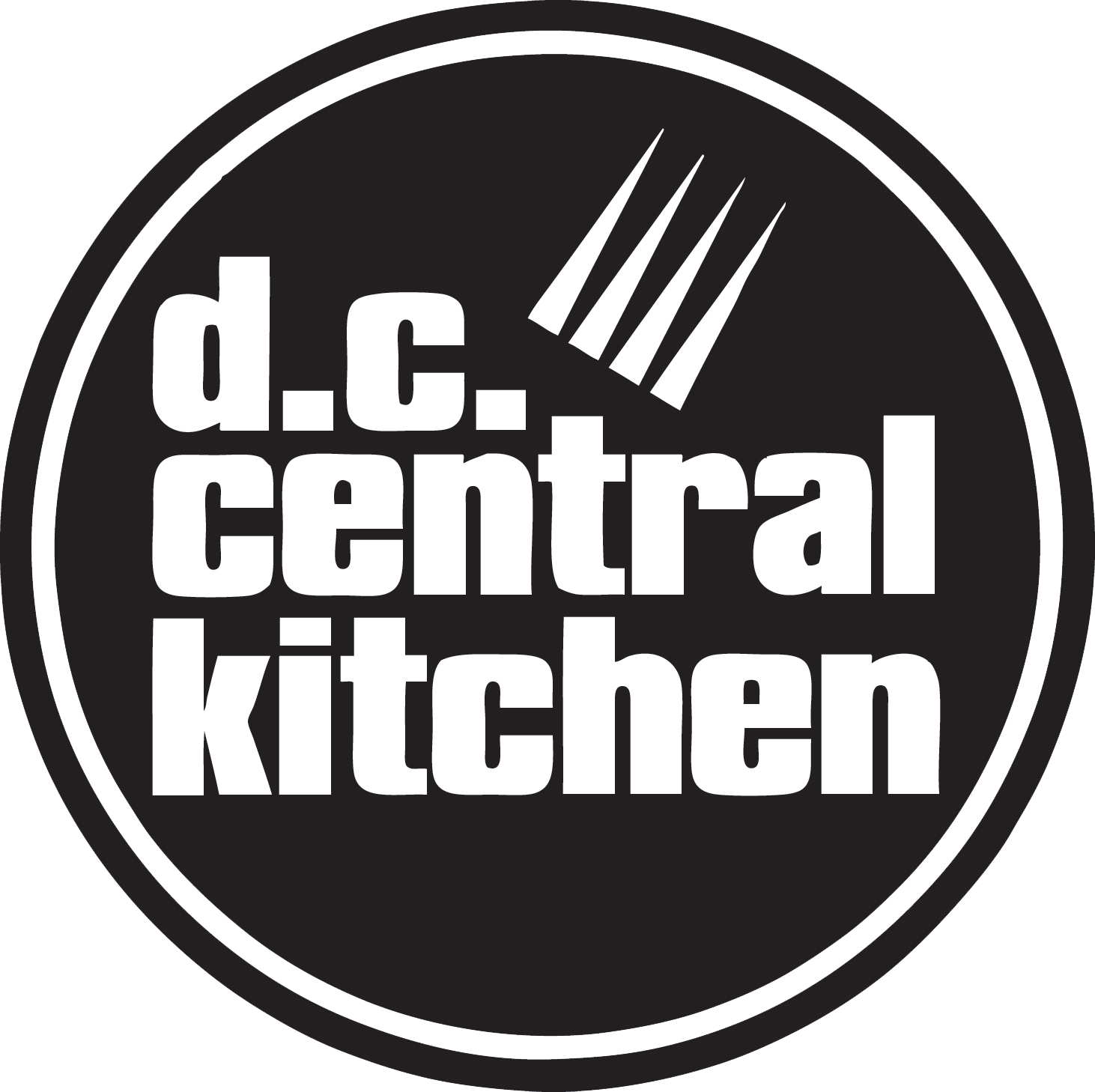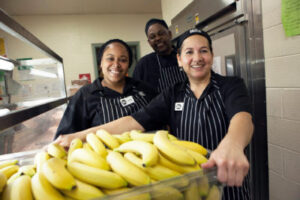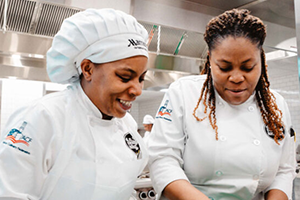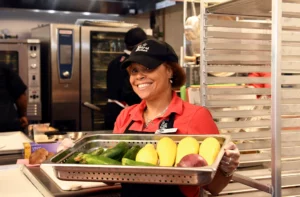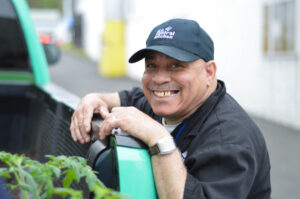DC Central Kitchen strives to be an environmentally responsible business committed to sustainability practices. As with everything we do, we’re always looking for ways we can do more, better. Earth Day is a great time to brainstorm what more we can do to protect our beautiful planet!
We were founded on the concept of using potentially wasted food to create meals for the community and train individuals facing joblessness in the culinary arts. While food recovery is still a part of our model, our sustainability practices have evolved and expanded in many ways over the decades.
We continue to partner with local groups to recover food, primarily raw proteins and produce from manufacturers, wholesalers, farms and restaurants. Over the past year, DC Central Kitchen has been the fortunate recipient of 3,000 lbs of venison culled from the DC area and more than 18,000 lbs of salmon from Freshwater Institute and the Institute of Marine Environmental Technology (IMET) that our chefs skillfully incorporated into dishes, like Venison Bolognese and Cajun-Seasoned Salmon for our schools and community meals. To minimize additional food waste, we work closely with other nonprofits, like Food Rescue US-DC, to share donations that we cannot utilize in our menus.
DC Central Kitchen’s staff prioritizes purchasing locally when building our menus. Locally grown food that is processed in the region typically has less of a carbon footprint, requires less energy consumption from refrigeration, processing and packaging, and allows us to support partners practicing sustainable farming practices that are regenerative and promote biodiversity. One new local product we’ve begun featuring this year is the invasive blue catfish, caught from the Potomac and Chesapeake Bay, that cooks into a delicious Crispy Fish Sandwich for our schools.
Our procurement team creates purchasing forecasts to help farmers know they have a guaranteed customer in DC Central Kitchen. Forecasting empowers farmers to make more informed decisions about their operation as they begin production planning and resource allocation, further reducing potential waste. As we enter the peak regional growing season, DCCK has already purchased $1,200,000 on local food this fiscal year. We’ve supplemented our local purchases with our popular gleaning program, which returns later this spring. Last season, DC Central Kitchen volunteers spent time harvesting produce from five partner farms, gleaning more than 5,400 lbs of fruits and vegetables that were brought back to our kitchen to be cooked into delicious meals for the community.
In addition to donations and purchasing efforts, we take great effort internally to reduce waste produced at DC Central Kitchen’s main facility, The Michael R. Klein Center for Jobs and Justice. Our team uses Leanpath technology to weigh and track all food waste. We use this data to understand what we are wasting, ways to minimize our internal waste, and train staff about the impacts of food waste. The majority of our food scraps are put into our onsite aerobic biodigester in order to divert waste from the landfill and reduce emissions. The facility also recycles, including a specific program for recycling PPE products like hair nets and gloves, which are regularly used by our chefs and volunteers.
DC Central Kitchen is looking towards what’s next for our sustainability efforts and hope you’re doing the same this Earth Day. To explore more ways you and your family can help protect the environment, visit the Earth Day website.
